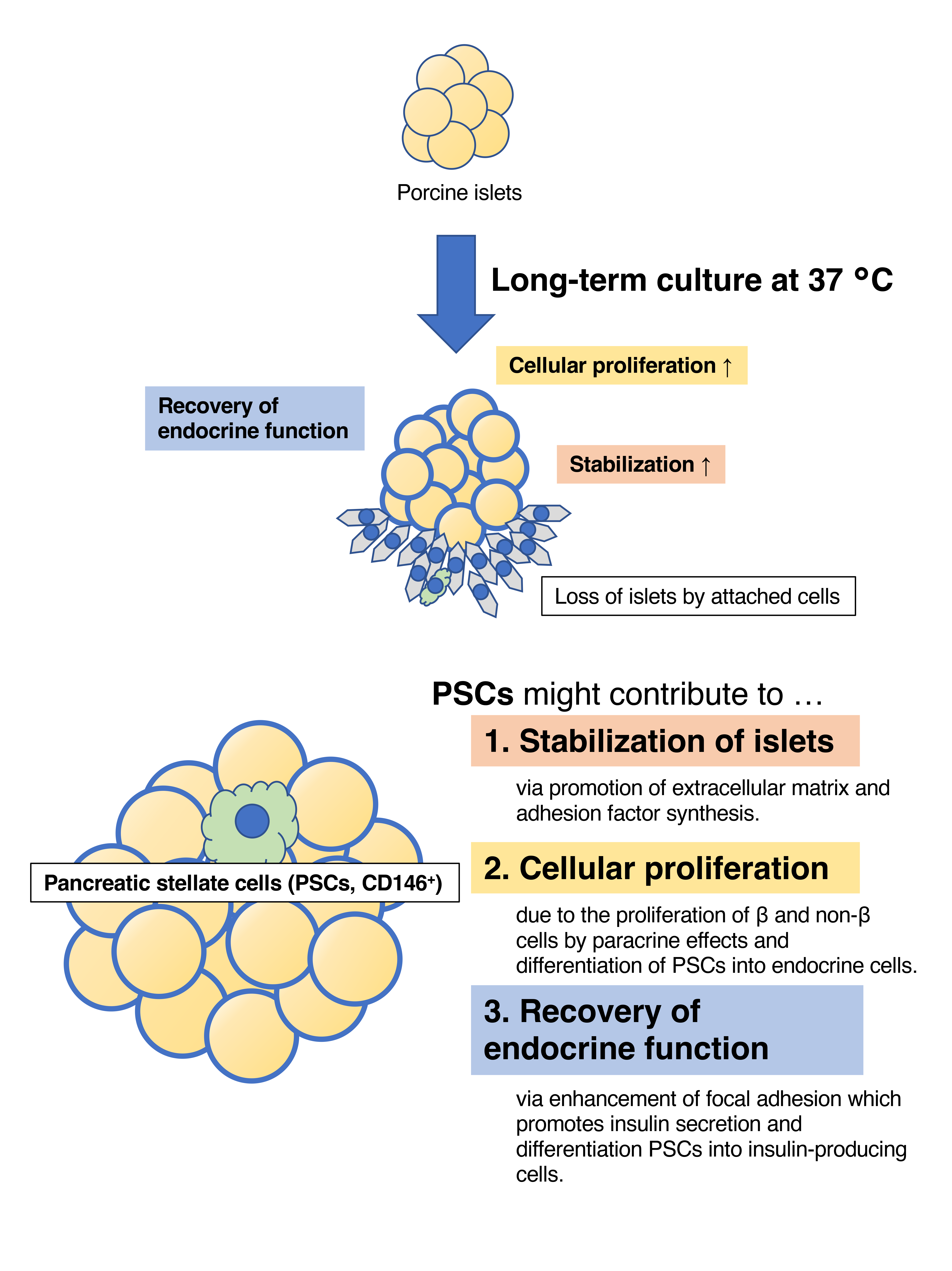Thirty seven degrees Celsius is preferable temperature condition for long-term culture of porcine islets.
Naoaki Sakata1,2, Gumpei Yoshimatsu1,2, Ryo Kawakami1,2, Shohta Kodama1,2.
1Department of Regenerative Medicine & Transplantation, Fukuoka University, Fukuoka, Japan; 2Center for Regenerative Medicine, Fukuoka University Hospital, Fukuoka, Japan
Porcine islet xenotransplantation represents a promising therapy for severe diabetes mellitus. For the success of adult porcine islet xenotransplantation, large numbers of high-quality islets must be obtained. However, porcine islet isolation is technically difficult, because of the vulnerability of islets, compared with islet isolation for other specie. The establishment of a porcine islet bank is a crucial challenge in the establishment of this therapy, to permit the on-demand provision of islets. For this purpose, the development of a suitable method for the long-term culture of porcine islets that can maintain their viability and function is essential. Here, we aimed to identify the optimal conditions for the long-term culture of adult porcine islets for xenotransplantation. We evaluated the factors potentially influencing successful 28-day culture of islets at 24°C and 37°C, and found that culture at 37°C contributed to the stability of the morphology of the islets via expressions of collagen I and Integrin beta 1, the proliferation of islet cells including beta and non-beta cells, and the recovery of endocrine function, indicated by the expression of genes involved in pancreatic development (Pdx1 and Neurog3), hormone production (Ins, Gcg, Sst), and glucose-stimulated insulin secretion which was deteriorated after long-term culture. Furthermore, the viability of the islets persisted during long-term culture. RNA sequence analysis of islets cultured at 37°C showed that the upregulated genes were associated with insulin secretion and cellular proliferation. These advantages may be provided by islet-derived CD146-positive stellate cells, which proliferated is long-term cultured islets at 37°C. We saw islet-derived proliferated spindle cells including CD146-positive cells harbored multipotency and paracrine effects. The efficacy of xenotransplantation using islets cultured for a long time at 37°C was similar to that of overnight-cultured islets. The long-term cultured porcine islets at 37°C enabled to engraft in renal subcapusular space of diabetic nude mice for 3 months. Porcine C-peptide could be detected at the same level in both mice received overnight and long-term cultured islets. In conclusion, 37°C is the preferred temperature for the long-term culture of islets. In this condition, CD146-positive stellate cells might contribute to stabilization of islets via promotion of extracellular matrix and adhesion factor synthesis, cellular proliferation due to the proliferation of islet cells by paracrine effects and differentiation of the stellate cells into endocrine cells, and recovery of endocrine function via enhancement of focal adhesion which promotes insulin secretion and differentiation of the stellate cells into insulin-producing cell (Figure 1). However, the culture method should be further refined for clinical use.
Mz. Yuriko Hamaguchi. intramural grant from Fukuoka University (211031, to NS). a Grant-in-Aid for Scientific Research “KAKENHI” (20K08972, to SK).